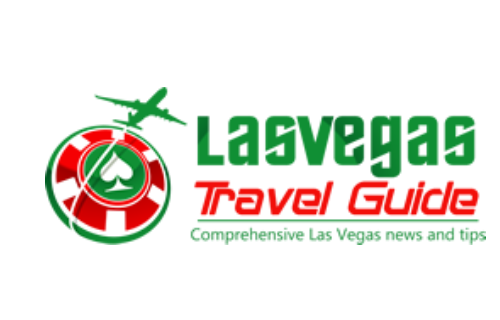Introduction
Stop right here – Vegas insider tip: Most visitors to this site will overpay by $727+ per trip to Las Vegas. Why? Because they don't have the secrets and tips to keep expenses low in Vegas while having a good time. Want the complete playbook for traveling like a Vegas local? Click here to save money on Vegas trips
Investing in Vacation Rental Properties in Las Vegas. Las Vegas isn’t just a city for entertainment—it’s also one of the most lucrative short-term rental markets in the United States.
The combination of 38+ million annual visitors, a robust convention industry, and year-round tourism creates constant demand for vacation rentals.
For investors, this means the opportunity to generate substantial rental income while also benefiting from long-term property appreciation. However, the market is regulated, competitive, and requires careful strategy.
In this guide, we break down everything you need to know about investing in vacation rental properties in Las Vegas in 2025, including legal requirements, profitability, neighborhood selection, and management tips.
Why Invest in Vacation Rentals in Las Vegas?
- Consistent Demand: Year-round events, conventions, and tourism create steady booking opportunities.
- High Nightly Rates: Prime locations can command premium prices, especially during major events.
- Diversification: Vacation rentals provide an additional income stream alongside long-term investments.
- Property Appreciation: Las Vegas real estate values have trended upward over the past decade.
- Tax Benefits: Mortgage interest, depreciation, and certain operating expenses may be deductible.
Understanding Las Vegas Vacation Rental Regulations
The city of Las Vegas and Clark County have specific rules for short-term rentals, which vary depending on property location. Investors must ensure compliance to avoid fines or penalties.
- Permit Requirements: A business license or special permit is often required for rentals under 31 days.
- Owner-Occupied Rules: In some areas, short-term rentals must be the owner’s primary residence.
- Safety Standards: Properties must meet building and fire safety codes, including smoke detectors and proper exits.
- HOA Restrictions: Many homeowners associations prohibit or limit vacation rentals.
- Clark County Ban: In certain unincorporated areas, vacation rentals are heavily restricted or banned.
Choosing the Right Neighborhood
Stop right here – Vegas insider tip: Most visitors to this site will overpay by $727+ per trip to Las Vegas. Why? Because they don't have the secrets and tips to keep expenses low in Vegas while having a good time. Want the complete playbook for traveling like a Vegas local? Click here to save money on Vegas trips
The Strip and Nearby Condos
High demand from tourists, but some buildings have restrictions on short-term rentals.
Downtown Las Vegas
Emerging nightlife and arts scene attracts visitors seeking alternatives to the Strip.
Henderson
Ideal for family-oriented vacationers and long-stay guests.
Spring Valley
Close to the Strip with more affordable property options.
Summerlin
Upscale area with high-end rentals for affluent travelers.
Property Types for Vacation Rentals
- Condos: Often located in prime tourist areas but may have HOA restrictions.
- Single-Family Homes: Offer more privacy and space for groups or families.
- Luxury Homes: Cater to high-net-worth travelers and special event bookings.
- Townhouses: Balance affordability and space, appealing to medium-sized groups.
Profitability Factors
- Location: Proximity to the Strip, convention centers, or event venues boosts occupancy rates.
- Property Features: Pools, game rooms, and luxury finishes can justify higher nightly rates.
- Seasonal Pricing: Adjust rates for events like CES, EDC, and major sports games.
- Marketing: High-quality photos and strong listing descriptions increase bookings.
- Guest Experience: Positive reviews drive repeat bookings and higher occupancy.
Calculating Return on Investment (ROI)
To estimate potential returns, consider:
- Average Nightly Rate × Occupancy Rate × 12 Months = Gross Annual Revenue
- Subtract operating expenses, mortgage payments, taxes, and management fees to determine net income.
Financing Vacation Rental Properties
- Conventional Mortgages: Require good credit and may have higher down payment requirements for investment properties.
- Portfolio Loans: Offered by lenders specializing in investment properties.
- Cash Purchases: Allow for faster closings and more competitive offers.
- Home Equity Loans/Lines of Credit: Can be used to fund down payments or renovations.
Self-Management vs. Professional Management
- Self-Management: Maximizes profit but requires significant time and effort.
- Professional Management: Charges 10–30% of rental income but handles bookings, guest communication, and maintenance.
Marketing Your Vacation Rental
- Airbnb and Vrbo: The largest platforms for vacation rentals.
- Direct Booking Websites: Reduce reliance on third-party fees.
- Social Media Advertising: Target specific traveler demographics with paid campaigns.
- Email Marketing: Retain past guests for repeat visits.
Risks to Consider
- Regulatory Changes: Rules for short-term rentals can change quickly.
- Seasonal Fluctuations: Occupancy rates may dip in slower months.
- High Competition: Many investors target the Las Vegas market.
- Property Damage: Increased guest turnover raises the risk of wear and tear.
Long-Term Market Outlook
With Las Vegas continuing to grow as a global entertainment and sports destination, vacation rental demand is expected to remain strong. Properties in prime locations with desirable amenities will see the highest returns, while compliance with regulations will be essential for sustainability.
Conclusion
Investing in vacation rental properties in Las Vegas in 2025 can be highly profitable when approached with research, compliance, and strategic marketing.
By choosing the right property, optimizing guest experience, and staying informed about local regulations, investors can create a steady income stream while enjoying the benefits of property appreciation in one of the most visited cities in the world.






